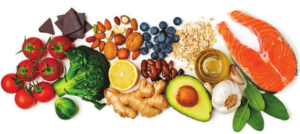 Spring is a time of renewal, regeneration, growth and energy. Plants and animals awaken from their slumber during the cold winter months, and vital nutrients stored in the roots of the plants and bodies of the animals come to the surface as life becomes more vibrant and fluid.
Spring is a time of renewal, regeneration, growth and energy. Plants and animals awaken from their slumber during the cold winter months, and vital nutrients stored in the roots of the plants and bodies of the animals come to the surface as life becomes more vibrant and fluid.
Human beings are no different. Humans stay indoors more during the winter months, and tend to pack on a little extra weight in the process. As the weather warms, humans become more gregarious and spend more time outside enjoying nature. This is just a natural process.
Therefore, it makes sense that what was observed by the ancient Chinese should still hold true today. Humans are supposed to take their cues from nature. As a species, humans should be more active during the warmer spring months. And to do this, we need proper nourishment. Qi (pronounced “chee”) is sometimes translated into energy. This Qi is the vital substance that keeps our bodies functioning until the day we die. To keep the Qi plentiful, we need to eat the proper foods at the proper times.
During the spring, we should be eating foods that have upward energies, such as green, sprouting vegetables. But we also need foods that will provide the extra nourishment for the increased amounts of activity that accompany the season of spring. This is where sweeter foods play a vital role. Foods such as fruits, nuts, yams, carrots and potatoes can provide the extra energy needed during the spring. But be careful not to overdo it. Too much sweet can overload the body and make it sluggish.
Sweets should be countered with pungent foods. Pungent foods aid in the movement of Qi upwards and outwards through the process of perspiration. Pungent flavored foods include scallions, onions, ginger, radishes, garlic, leeks and chives.
According to Traditional Chinese Medicine theory, spring is the season of the liver and the gallbladder. These organs regulate a smooth flow of energy throughout the whole body. However, they are prone to stagnation because we do not take proper care of ourselves. This can manifest as anger, irritability, depression, insomnia and even pain. Stagnation can occur when people eat too many poor-quality foods that may be full of chemicals.
Foods that help ward off stagnation include foods rich in chlorophyll, such as wheat grass, spirulina, chlorella, parsley, kale, Swiss chard and collard greens. All of these foods are abundant during the months of spring. It is also a good idea to have a glass of warm water with a slice of lemon first thing in the morning. This will help detoxify the liver and gallbladder to start the day off fresh. Lastly, foods that have a slightly bitter taste can help ward off heat in the liver. This includes foods like asparagus, quinoa, romaine lettuce and dandelion tea.
If you are curious about how to eat according to the seasons, contact a local licensed acupuncturist. They will be able to guide you along your healing journey through the use of Traditional Chinese Medicine and nutritional counseling.




